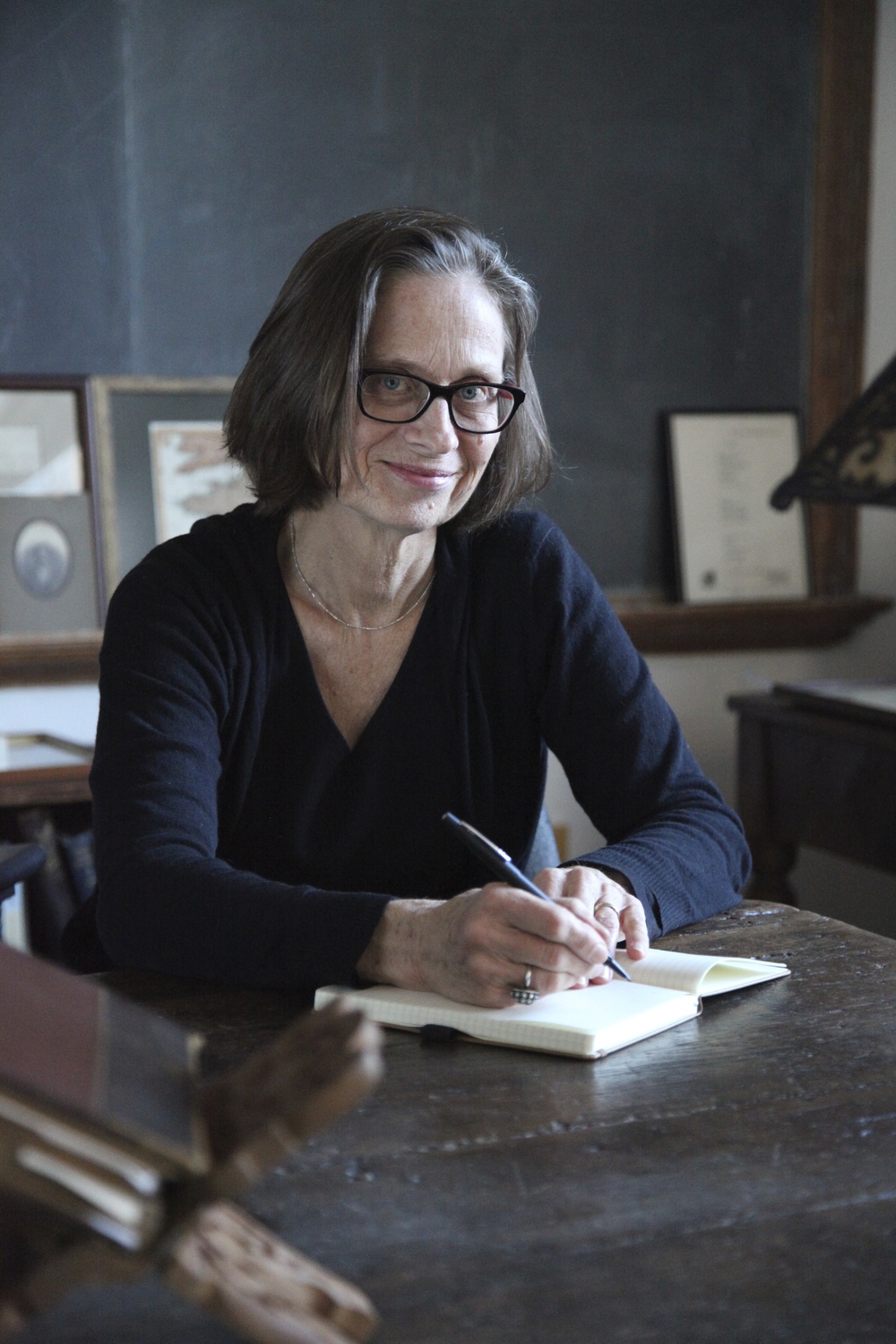
News
Summers Will Not Finish Semester of Teaching as Harvard Investigates Epstein Ties

News
Harvard College Students Report Favoring Divestment from Israel in HUA Survey

News
‘He Should Resign’: Harvard Undergrads Take Hard Line Against Summers Over Epstein Scandal

News
Harvard To Launch New Investigation Into Epstein’s Ties to Summers, Other University Affiliates

News
Harvard Students To Vote on Divestment From Israel in Inaugural HUA Election Survey
Lydia Davis at the Harvard Book Store
The Harvard Book Store newsletter is not often a source of particular controversy. But in their January 2002 edition, they put out a column entitled “Spotlight: McLean Alumni” highlighting works on or of former residents of the infamous psychiatric hospital—Sylvia Plath, Anne Sexton, etc.—that could be purchased in the store. At the top of this list was Lydia Davis’s name. Davis, a renowned short story author and translator, has never been a patient of McLean’s, and, in fact, has only been inside that storied institution once, to visit a friend. In response to this newsletter, she penned a complaint entitled “Letter to a Marketing Manager.”

On the evening of April 8, the Harvard Book Store sponsored a reading and talk by Davis at the Brattle Theater. In a self-conscious acknowledgement of the aforementioned series of embarrassing events, an enormous image of the fateful newsletter was projected onto a screen on the stage. Davis began her talk—at which she was to read from her work and speak about her experience as writer—by reading the letter in question. Like many of her best pieces, it at first appears to be about an ordinary situation, but it becomes something funnier, weirder, and more wonderful.
Davis’s works are often only a few paragraphs or fewer and sometimes are no more than a witty or affecting one-liner. In addition to the aforementioned letter, she read other letters of complaint and many short stories she had written. Two particularly notable pieces included a celebrated letter addressed to a frozen peas manufacturer and a series of short anecdotes by Flaubert that she had pulled from his letters and translated. She generally delivered her works in a deadpan and slightly wry tone.
During the question and answer session, Davis, unlike her writerly self, spoke in a less prepared style—she gave long, thorough answers that seemed at least a little at odds with her usual brevity. Many audience members were curious as to how she came to her distinct, compact style. Why, one audience member wanted to know, does she consider what she writes to be stories, as opposed to poems, essays, or otherwise? In response to this query, Davis spoke to the difficulty of finding one word to cover the whole of what she does. But, she said, all her writing comes out of the same processes. “When I set out to write something, I don’t think ahead of time. I don’t think in categories, so I don’t think, this is going to be a rant, a meditation, a poem, or just a story,” she said. Later, she gave an expansive definition of what a story is. “If there is any narrative in it at all, if there’s a little tiny scrap of narrative, if there’s an I, if there’s a thought, if there’s a ladybug doing something, if there’s just something you can start with to build a little story around in your imagination, as a reader, then I think it is justified to call it a story,” she said.
One audience member asked her if she finds herself overwhelmed by all the possibilities around her, given that she can find a story in the minutest of details. “It’s true, I could feel that way. I could see why you think I might,” Davis said. This elicited significant laughter from the audience. She continued: “If I were writing a conventional short story, then it would take longer, and I would be making up a lot of it. But as it is, I am taking little bits of everyday life.” She then conceded to the audience member’s assertion. “It’s true that there’s just a wealth of stories. But I somehow don’t feel overwhelmed.”
Only once could Davis remember feeling overwhelmed. “On a train, I looked out a window, and I thought, what if you wrote up this train journey.” she said. “What if you wrote up everything you saw out the window, like every kind of rock you explain what it is. Every kind of tree. Every factory building, what it used to be. And then I felt overwhelmed. Because I kind of wanted to do it, but it would be an immense book. It would be interesting.”
Want to keep up with breaking news? Subscribe to our email newsletter.
